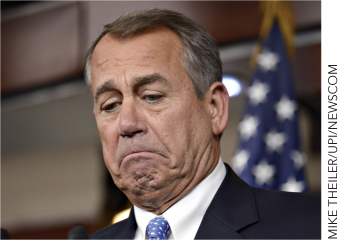Voters and the Incentive to Be Ignorant
Knowledge is a good thing, but sometimes the price of knowledge is too high. Imagine that your professor changed the grading scheme. Instead of awarding grades based on individual performance, your professor averages test scores and assigns the same grade to everyone. Will you study more or less under this new grading scheme? We think that most people would study less because studying now has a lower payoff. Let’s say that before the change an extra few hours of studying would raise your grade by 10 points. What is the payoff to studying under the new system? Imagine that there are 100 people in your class. Then the same hours of studying will now raise your grade by just 10/100 or 0.1 points.* Studying doesn’t pay under the second system because your grade is mostly determined by what other people do, not by what you do.
Now let’s apply the same idea to politics. When you choose a politician, does studying have a high payoff? No. Studying position papers, examining voting histories, and listening to political speeches is sometimes entertaining, but it doesn’t offer much concrete return. Even when studying changes your vote, your vote is very unlikely to change the outcome of the election. Studying politics doesn’t pay because the outcome of any election is mostly determined by what other people do, not by what you do.
Rational ignorance occurs when the benefits of being informed are less than the costs of becoming informed.
Economists say that voters are rationally ignorant about politics because the incentives to be informed are low.
It’s not hard to find evidence that Americans are uninformed about politics. Consider the following questions. Who is the speaker of the U.S. House of Representatives? Who sings “Gangnam Style”? Be honest. Which question was it easier for you to answer? And which question is more important? (At the time of writing, John Boehner was speaker of the House. “Gangnam Style” was a Psy hit.)
Not knowing who the speaker of the House is might not be critical, but Americans are equally uninformed or worse—misinformed—about important political questions. For example, in one survey Americans were asked to name the two largest sources of government spending out of the following six choices.
 Welfare
Welfare
 Interest on the federal debt
Interest on the federal debt
 Defense
Defense
 Foreign aid
Foreign aid
 Social Security
Social Security
 Health care
Health care

Amazingly, 41% named foreign aid as one of the two biggest programs. But foreign aid is by far the smallest program of the six listed. Do you know the correct answers? The two biggest programs are defense and Social Security. Americans were not even close to the correct answers; for instance, the second most popular choice was welfare, which is at least a large program although still much smaller than defense and Social Security.2
Similarly, by their own admission, most Americans know “not much” or “nothing” about important pieces of legislation such as the USA Patriot Act. Most Americans cannot estimate the inflation rate or the unemployment rate to within five percentage points. Hundreds of surveys over many decades have shown that most Americans know little about political matters. Of course, we’d all like to change that—we are glad you are reading this book!—but in the meantime it is simply a fact. And it appears to be a fact that is not easily changed.
Why Rational Ignorance Matters
Ignorance about political matters is important for at least three reasons. First, if voters don’t know what the USA Patriot Act says or what the unemployment rate is, then it’s difficult to make informed choices. Moreover, voters who think that the unemployment rate is much higher than it actually is are likely to make quite different choices than if they knew the true rate. The difficulty is compounded if voters don’t know the positions that politicians take on the issues, and it is worse yet if voters don’t know much about possible solutions to problems such as unemployment. Voters are supposed to be the drivers in a democracy, but if the drivers don’t know where they are or how to get to where they want to go, they are unlikely to ever arrive at their desired destination.
CHECK YOURSELF
Question 20.1
 Would you expect more rational ignorance about national issues among national voters or about local issues among local voters? Make an argument for both possibilities.
Would you expect more rational ignorance about national issues among national voters or about local issues among local voters? Make an argument for both possibilities.
Second, voters who are rationally ignorant will often make decisions on the basis of low-quality, unreliable, or potentially biased information. Not everyone has read a good principles of economics textbook and those who haven’t are likely to vote in ways that are quite different from someone who is better informed.* It’s not really surprising, for example, that better-looking politicians get more votes even if good looks have nothing to do with policy. Once again, we should not expect too much in the way of wise government policy when voters are rationally ignorant.
The third reason that rational ignorance matters is that not everyone is rationally ignorant. Let’s look at this in more detail.